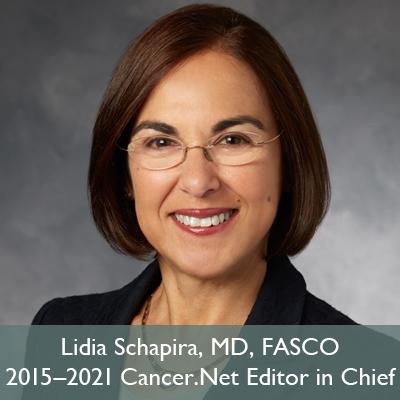
After active treatment for cancer ends, many cancer survivors continue to see their oncologist for follow-up visits. But eventually a tough question will need to be asked: When is it time to say goodbye?
Cancer clinicians, patients and family caregivers often develop close bonds during the active treatment period. Oncologists themselves often find these visits personally rewarding and meaningful. In my own practice, I have found that some people find it difficult to ask “big picture” questions while they are in active treatment. All their efforts are focused on getting from 1 day to the next. It may take months or longer for someone to be fully prepared to talk about the risks of cancer recurrence or potential late effects of treatment. This information is important in taking active steps toward recovering a sense of control and normalcy.
Follow-up visits can be useful for many reasons, including managing lingering symptoms after the end of active treatment, such as fatigue, pain, or neuropathy, which is a form of nerve damage. People who require special exams may need to return to see their clinicians for many years. Others may be given a choice or even encouraged to return to their primary care physician for their medical care. For the growing number of cancer survivors, switching to primary care after finishing cancer treatment can be challenging, especially if the cancer care team and the primary care practice do not communicate effectively.
In order to help make this transition easier, many cancer survivors can find it helpful to have a written survivorship care plan. Written care plans are not always necessary, but it is helpful to have a plan for managing side effects and coordinating care between the cancer care team and the primary care physician. Having a written care plan can make it easier to manage all of this. ASCO provides survivorship care plan templates that can be downloaded and completed by cancer survivors working with members of their clinical team. These plans help organize future testing and medical visits and to reduce confusion about the roles of various doctors who are part of the team.
The transition from active cancer treatment back to “normal” is hard, and saying goodbye to your oncologist may feel stressful. Some people may feel like they want to see their oncologist forever, while others are ready to say goodbye and feel prepared to manage their health with guidance from their primary care physician. Everyone’s experience of this situation is different. It may be helpful to talk with your oncologist about this transition during your cancer treatment period, so you can anticipate the transition and feel better prepared when the time comes to say goodbye. This may involve building up your support network and restarting care with your primary care doctor. Being well informed and confident can help ease anxiety that may come with this change. Setting goals to maintain a healthy lifestyle and celebrating the return to normalcy as a milestone in your care may help during this often difficult passage.
Some people may feel like they want to see their oncologist forever, while others are ready to say goodbye and feel prepared to manage their health with guidance from their primary care physician. Everyone’s experience of this situation is different. It may be helpful to talk with your oncologist about this transition during your cancer treatment period, so you can anticipate the transition and feel better prepared when the time comes to say goodbye. This may involve building up your support network and restarting care with your primary care doctor. Being well informed and confident can help ease anxiety that may come with this change. Setting goals to maintain a healthy lifestyle and celebrating the return to normalcy as a milestone in your care may help during this often difficult passage.
